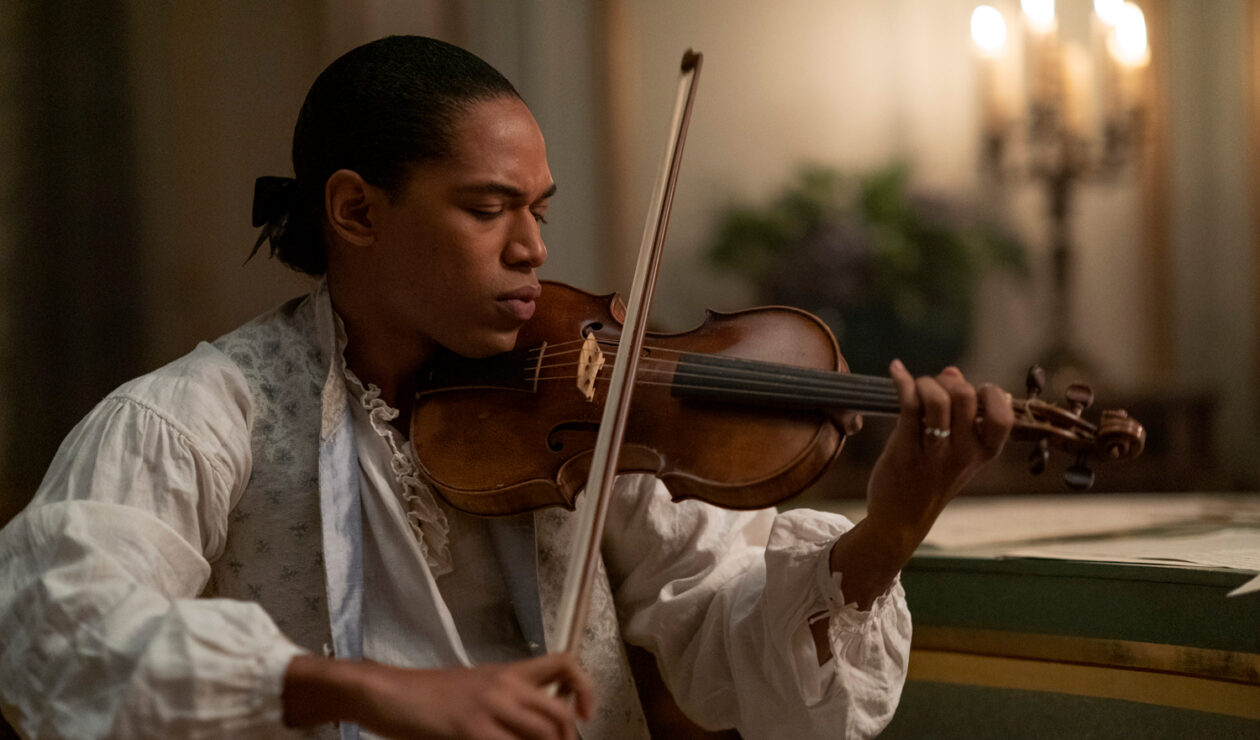You may not have heard of the 18th-century French composer, conductor and violinist Joseph Bologne, a knight of the French court, which is entirely the point. He was a contemporary of Mozart and in some ways his equal, but there was a problem: he was half Creole and his skin colour consigned him to obscurity along with his music.
“No one can tear down an excellent Frenchman,” the father tells the boy who is dropped off at boarding school in Paris after being torn from the arms of his distraught mother, a Senegalese slave on a Guadeloupe plantation.
The youngster follows his advice and excels in most things but particularly the violin, and the film opens with Mozart giddily skipping around on stage in a French concert hall before Bologne (Kelvin Harrison Jr, who was BB King in Elvis) throws down the challenge. Duelling violins it is, and Bologne wins, before shaming new opponents in a swordfight.
He is so charming and accomplished that his friend, Queen Marie Antoinette (Lucy Boynton), bestows on him the title of Chevalier de Saint-Georges, a great privilege.
Of course, something must go wrong because this much peacocking can never go unpunished.
The timing is the eve of the French Revolution and the peasants are agitating for liberté, egalité, fraternité. Chevalier falls foul of the increasingly nervous court, ostensibly because he rejected an older aristocrat, Marie-Madeleine (Minnie Driver). His attempt to beat the German composer Christoph Gluck to head the Paris Opera is a disastrous overreach, and he tempts the fates further through a dalliance with opera singer Marie-Josephine (Australia’s Samantha Weaving), a marquise married to a tyrant.
By now it feels as if we are settling in for a Bridgerton spin-off with an artless melodrama in which Chevalier is just another case of blind casting. But the worm turns: rejected by the aristocracy, he finds the revolutionary ideas start making more sense, and he embraces the music by his Wolof-speaking mother, who has joined him in Paris.
Writer Stefani Robinson (Atlanta) and director Stephen Williams (Watchmen) bring a made-for-TV sequential flatness to a story that deserves more complexity and nuance. It has none of the eccentric coloratura of The Favourite (2018) or The Great (2020), but invests heavily in wigs and theatres, and a love story lacking in chemistry.

Get InReview in your inbox – free each Saturday. Local arts and culture – covered.
Thanks for signing up to the InReview newsletter.
The early stages of the French Revolution, a blood-drenched decade of social upheaval that changed European history, is depicted as a small rabble jostling the marquis who holds a gun he somehow fails to fire. While the real Bologne turned on Marie Antoinette and led an all-Black regiment who fought to take down the monarchy, Bologne’s real story is here only signposted, never explored.
Chevalier is in theatres now.
Support local arts journalism
Your support will help us continue the important work of InReview in publishing free professional journalism that celebrates, interrogates and amplifies arts and culture in South Australia.
Donate Here




